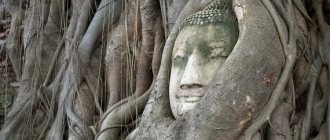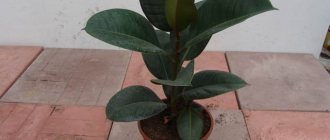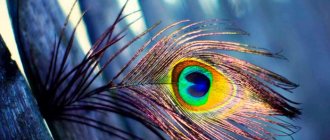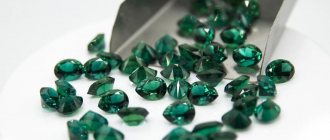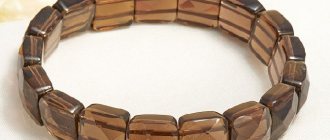General information about horseshoes in the house
Horseshoe for luck.
The tradition of hanging a horseshoe over the front door exists not only in Russia. It is common in Egypt and Mexico. Occasionally, the amulet can be seen in the homes of residents of other countries.
Symbol meaning
The meaning of a horseshoe depends on its position. First of all, it is a talisman of good luck and happiness. He gives the house and its residents a blessing from higher powers.
The amulet is a symbol of wealth and prosperity, promotes the fulfillment of desires. The talisman improves health and can attract love. Some magicians use it to enhance clairvoyance. A horseshoe is capable of sending prophetic dreams to residents of a house or apartment.
Another meaning of a horseshoe is protection, patronage. Such a talisman will not allow ill-wishers to cross the threshold. The talisman will take away all misfortunes and misfortunes from the house, protect against natural disasters and catastrophes. It will become more comfortable to be in the room. Pets will stop running away.
Thanks to the creation of a favorable environment, the residents of the house will be less likely to quarrel with each other and will begin to look for compromises. Indoor plants will take root better.
History of the origin of the belief
There are several versions of the origin of the belief. The first is associated with the energy field of the amulet. In ancient times, people worshiped fire: it was a symbol of warmth, safety, and home. Horseshoes were made by blacksmiths, who were equated with the messengers of the gods, since they learned to control the flame and use it.
Horseshoes were worn by horses, which in many cultures were a symbol of strength, fertility, and prosperity. People associated these animals with power, gods, and the sun.
They were endowed with mystical abilities and a high level of intelligence. In fairy tales, horses often acted as assistants to the main characters and drove away evil spirits. This led to the fact that the horseshoe also became a symbol of the hearth and a powerful amulet.
A more down-to-earth version of the origin of the belief is associated with the economic features of the Middle Ages. At that time, only wealthy people owned horses. Metal was expensive, and so was handmade. Therefore, a found horseshoe promised wealth: a person could sell it.
There is an additional Orthodox version. One day the devil appeared in front of the blacksmith Saint Dunstan in the guise of a man. The craftsman was not at a loss, realized that there was evil spirits in front of him, and began to torture the demon with a hot iron.
This continued until the devil asked for mercy. After this, the blacksmith drove out the demon and hung an iron horseshoe above his door so that the devil would not decide to return. Thus, the amulet began to protect Dunstan from evil forces.
Where did the tradition come from?
The tradition of using this sign as a talisman of good luck is lost in the mists of time. In past times, the horse was the main mode of transport, but not everyone could afford it. Families with little income bought old horses, and only rich people kept young, strong and fast horses.
Finding a horseshoe, often made of expensive metal, for a poor person meant not just luck, but real wealth. It could easily be turned into food or clothing by selling it at a profit. Perhaps this is why the horseshoe has become a symbol of good luck and prosperity, but this is only one explanation. There is something else, less prosaic.
The Slavs treated horses with respect, because they were not just improvised animals. They helped support the family and were its breadwinners. In addition, according to legends, it was horses that carried the chariot with the solar disk across the heavenly expanse.
This again brings us back to the Slavic cult of the sun and helps us understand why such a simple object acquired great significance for our ancestors, turning into a horseshoe of happiness.
Blacksmiths in Rus' have always been respected, because they subdued fire and metal.
There is an old story that tells how the devil himself came to a blacksmith asking him to shoe his sore leg. The master agreed to help, but drove in too large a nail, which caused pain to the evil one. While the devil was raging furiously, the blacksmith chained him. He agreed to let the horned one go with one single condition: if the devil does not come to houses on which a horseshoe hangs. The cunning master knew that there was one of these in his home.
Over time, such a talisman for the home was transformed into a personal amulet, and now on store shelves you can often find a horseshoe talisman that is hung on the refrigerator.
Criteria for choosing a mascot
The most powerful amulet will be a horseshoe that has been on a horse’s hooves. It is advisable to find it yourself: this is a symbol of the fact that in front of you is a talisman energetically compatible with you. To discover the amulet, it is recommended to visit a farm, hippodrome or stable, and surrounding areas.
If you cannot find a horseshoe yourself, you can purchase one from a blacksmith. An alternative would be beautiful souvenirs. Making handmade horseshoes is encouraged: such a talisman is pre-charged with your energy. In this case, you need to carefully consider the choice of materials.
A horseshoe can be made from:
- Metal . Such a talisman will protect against evil spirits, ill-wishers, and magical influences. It neutralizes the evil eye, love spell or lapel, and directs negative energy back to the customer and the performer. The only limitation concerns aluminum. You cannot make a horseshoe from it, otherwise you will bring troubles and misfortunes to your home.
- Wood . The amulet will protect you from envious people and will prevent you from becoming a victim of slander. The amulet will make you invisible to ill-wishers: their attention will switch to other people. It will be possible to avoid intrigues and conflicts.
- Clays . The material has warm energy. It improves relationships between family members, gives them self-confidence, and contributes to the realization of ambitions.
Miracle of St. Spyridon - worn-out slipper pendant
Spyridon, canonized by the Christian Church, lived at the beginning of the first millennium AD in Cyprus. Initially he was a simple shepherd, but was later appointed bishop. The Lord Himself, seeing Spyridon’s piety, endowed him with the gift of working miracles. He healed the sick and sometimes raised the dead.
The miracle of Spyridon in the form of slippers still cannot be explained. The relics of the saint are in the temple dedicated to him in Corfu, Greece. The body of a person who died almost two thousand years ago still has a normal “living” temperature, and his hair and nails grow back. Moreover, the saint's shoes gradually wear out and are forced to be replaced once a year!
The significance of the Miracle of Spyridon pendant for women is very great, especially if it is supported by faith in God. It is believed that the saint still walks around the world and works miracles. The Slipper of Spyridon of Trimifuntsky pendant is a symbol of faith in miracles, a prayer for intercession, a request for healing from illnesses and the sending of a desired pregnancy.
Spiridon of Trimifuntsky's slipper and pendant in the form of him
Placement methods
There are several ways to place a horseshoe. You can be guided by Slavic methods or the teachings of Feng Shui.
According to Feng Shui
According to Feng Shui, it is recommended to hang a horseshoe inside the house. This helps improve the energy in the house and prevents qi from leaving the room. It is allowed to place the amulet not only above the front door, but also in the kitchen.
You cannot hang a talisman in the bedroom: this will lead to a deterioration in the quality of the intimate life of the spouses. You should not leave the amulet in the utility room, bathroom or toilet.
A horseshoe can be placed not only at home. In the car, the amulet will become a powerful amulet: it will protect a person from accidents and attract good luck. This is especially useful for those people whose professional activity involves driving a car.
Horseshoes are buried near the house on the northwest side. This also attracts good luck, but no one should find the talismans. Amulets are sometimes placed next to indoor flowers to improve their growth.
Slavic method
The Slavs preferred to hang the amulet on the outside of the house. There was a belief that such a talisman would prevent evil spirits from entering.
Ancestors used not only horseshoes. Any items related to horses were suitable. However, the horseshoe was considered the most charged talisman.
Slavic talisman horseshoe.
Match pendant
The match pendant is not a nameless piece of jewelry: it is the calling card of the Italian jewelry house Pasquale Bruni. According to Maestro Bruni, every piece of jewelry is not just a beautiful form, but also content embodied in precious metals and stones. Behind every creation of the master there is a general idea.
The famous pendant from Bruni is a “hunting” match made of gold with the engraving “Accendemi”, which means “Light me up” in Italian. She blew up the fashion world back in the 90s of the last century, but remains super popular even now.
Depending on the meaning that the owner puts into it, a match pendant means:
- a symbol of temperamental nature and eternal feminine charm;
- readiness for change and internal energy to implement grandiose plans;
- expectation of new passionate love or readiness to rekindle feelings in someone you already like.
But don’t think that a pendant with a silver match is only suitable for a girl: it will organically fit into the stylish image of a brutal macho. In general, here is a trendy piece of jewelry in a unisex style that suits absolutely everyone.
Match pendants in the Sunlight catalog
Nuances of the location of the horns
The effect of the amulet depends on the location of the horns. Some countries have their own rules. For example, in Latin America, Europe and the East, a horseshoe is hung with its horns down.
It is believed that thanks to this, luck and happiness will flow from the metal and spill onto the residents of the house. The English and Irish, on the contrary, hang the amulet with its horns facing up. Then the amulet resembles a cauldron from which nothing spills. This helps maintain positive energy within the family.
Up
A horseshoe with its horns facing upward acquires the properties of a talisman. It attracts happiness, luck and love, accumulates positive energy, and prevents it from escaping into the external environment.
In this case, you need to place the talisman inside the house. Otherwise, it will become a barrier and prevent positive energy from entering the home. A horseshoe, placed with its horns up, is visually similar to a magnet: it attracts all good things to its owner.
Horseshoe with horns up.
Down
A horseshoe placed with its horns facing down takes on a different meaning. She becomes a talisman. It is customary to leave such an amulet outside the house. It will act as a protective barrier and will not allow negative energy to approach. Family members will no longer suffer from nightmares, obsessive thoughts, depression, and weakness. The headaches will go away.
If it is not possible to attach a horseshoe from the outside, you can leave it on the inside, but it must be above the front door. It is not forbidden to hang 2 products at once in order to receive both protection and help in business.
Horns down.
What does the Hai pendant mean?
Let's start with the meaning of the Hai pendant, for which we will need to turn to Jewish culture. It places great emphasis on the value of life as such. The word "chai" in Hebrew means "life" and symbolizes the number 18. This word is made up of two letters that form a visually striking motif that is often used in jewelry making.
The word “hai,” although Jewish, does not carry any religious meaning. So pendants with this symbol are often worn by people who are far from Jewish traditions and Judaism. In this case, it usually means a greeting or a sign of reaching adulthood - 18.
But the Star of David is worn mainly by Jews. It is one of the most recognizable symbols in the world (along with the Christian cross and the Muslim crescent). It is a hexagram consisting of two equilateral triangles superimposed on each other.
On the left is the Hai pendant, on the right is the Star of David.
There are many interpretations of the sacred meaning of the Star of David, from ancient to those proposed in the present century, a superficial description of which would require a dozen similar articles. Let's be brief: now jewelry with this symbol is worn mainly as a sign of belonging to the Jewish nationality or Israeli citizenship.
Materials for attaching the amulet
The following options for attaching the amulet are common:
- For 1 nail . Classic fastening method. You can screw a screw into the hole in the middle of the amulet, thereby nailing it to the wall. An alternative is to drive a nail in first, then hang the talisman on it.
- For 7 nails . This option is considered the most acceptable from the point of view of magicians. If you drive a nail into each hole of the talisman, you will be able to greatly enhance its effect.
- On the rope . This method was used by the Old Believers. It is more suitable if you use a horseshoe as a talisman. If the rope comes undone, it means that the amulet has protected you from some great misfortune. After this, the amulet loses its properties and needs to be replaced.
How to choose the right place and hang a talisman
The place for the talisman is chosen by the head of the family. Before attaching the amulet, each family member must hold the amulet in their hands. This will allow the talisman to remember the energy of the residents of the house. It is advisable for the head of the family to walk around all the rooms three times with the amulet in his hands. It is better to do this clockwise.
Indoors
Indoors, the talisman can be placed above the front door, in the kitchen, or in the office. It is not recommended to hang an amulet in the bedroom, as this will provoke a conflict of energies.
It will become difficult for a person to fall asleep, he will constantly be in an overexcited state, and will begin to conflict with others due to fatigue and irritability.
The toilet, bathroom and pantry are unsuitable places to place the mascot. These premises are considered official and unclean. To hang an amulet there means to treat it with disrespect.
In this case, the energy of the amulet will become negative and begin to work against the residents. You cannot place the talisman next to icons. This leads to a collision of different energies.
Horseshoe inside the house.
Outside
The amulet can be hung above the front door, near the windows, or the gates of the house. In this situation, the talisman will protect the residents of the premises from negativity coming from outside.
You cannot place it next to service premises: a chicken coop, a toilet, a barn, etc. This will lead to the opposite effect: the talisman will attract failure.
Horseshoe outside the house.
Activating and enhancing the magical abilities of the horseshoe
Several methods are used to activate the amulet. You can charge it or read the plot. It is recommended to leave the horseshoe near an open window for the day.
Its surface should receive sunlight and moonlight. This will allow the talisman to be charged with cosmic energy. Do not close the window: the presence of obstacles will interfere with the process.
To increase the magical abilities of the talisman, it must be secured using natural materials. When you hang a horseshoe, all your thoughts should be positive. Focus on your desires, give the talisman an energetic message. Place the amulet as high as possible.
Conspiracies
The plot will help activate the amulet. With the help of a spell, you can determine the main task of the talisman: attracting wealth, love, improving family relationships, etc. The text of the conspiracy to generally enhance the effect of the amulet.
Horseshoe spell.
DIY making
Most often, horseshoes are made from cardboard, coffee beans or salt dough.
From cardboard
To create a talisman you will need thick cardboard, scissors, a pencil, glue, and thick threads.
Algorithm of actions:
- Prepare a template in advance, then trace it.
- Cut out a blank from cardboard.
- It is wrapped with threads.
- At the end you can make a loop.
- It is recommended to secure the thread with glue so that it holds better.
The finished product is decorated to your taste.
From coffee beans
To make a talisman you will need cardboard, glue, scissors, coffee beans, fabric and magnets.
Execution sequence:
- The cut blank is covered with fabric.
- A magnet is sewn into the back or secured on the outside.
- The workpiece is covered with coffee beans.
From salt dough
The dough is prepared from 100 g flour, 50 g salt and 70 ml water. To simplify the work, you can add vegetable oil so that the material does not stick to your hands.
For decoration use brushes, paints and clear varnish. The dough is first kept in the refrigerator for several hours, then a horseshoe and decorations are molded from it. The workpiece is dried in the oven or on a radiator. If necessary, the product is painted, decorations are fixed and varnished.
When did they start shoeing horses?
The method of shoeing horses was first used by the Gauls around the 4th–3rd centuries. BC e. In the Middle Ages, they learned to fasten metal horseshoes with special nails - uhnals.
Interesting materials:
How to bleach stains on carpet? How to bleach raincoat fabric? How to bleach plastic in a washing machine? How to bleach yellow plastic in the refrigerator? How to bleach plastic? How to bleach plastic dishes? How to whiten plastic doors? How to whiten plastic windows from yellowing? How to bleach plastic ones? How to bleach plastic from yellowness?
